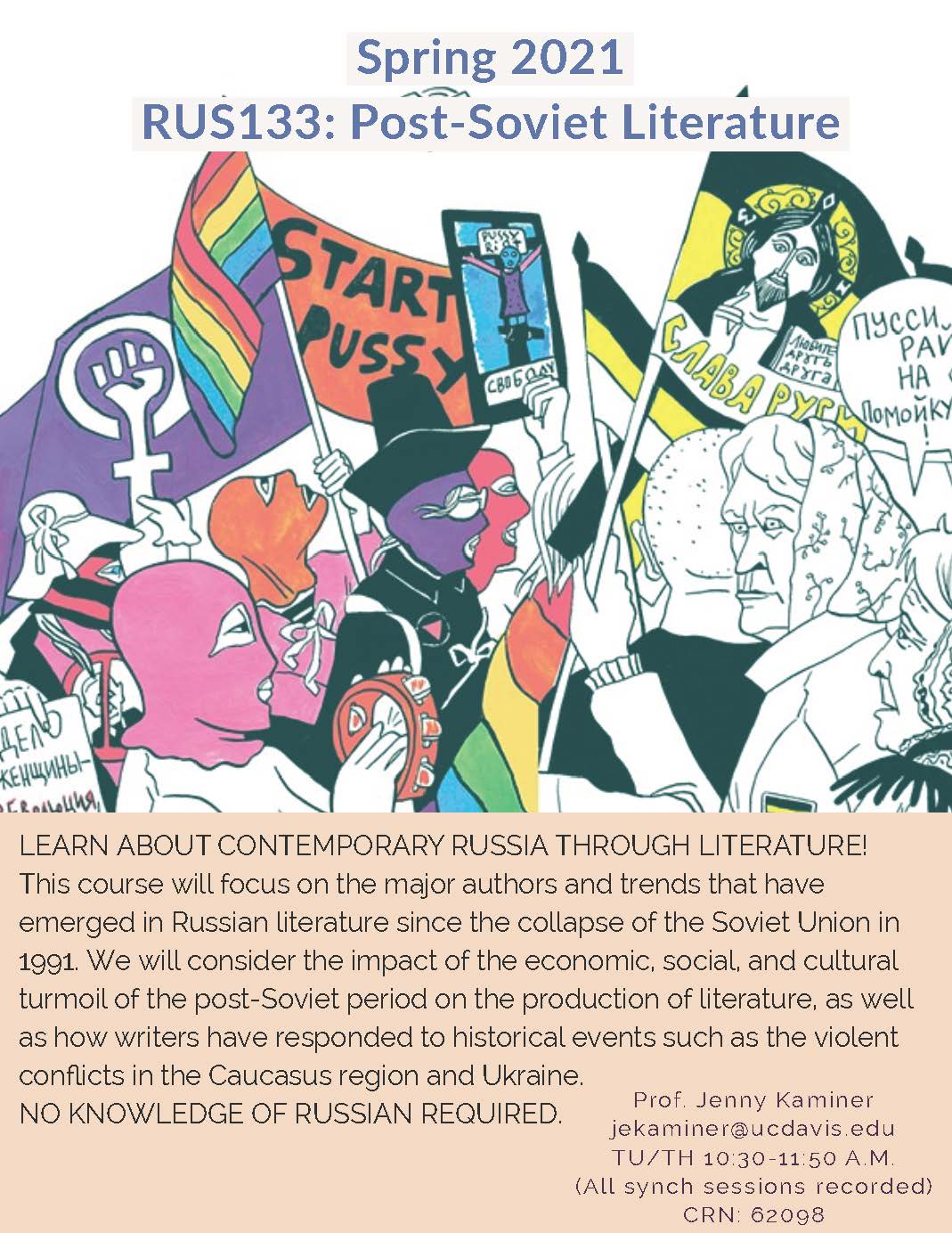- For day, time, room, and TA information, see our PDF SCHEDULE or the course search tool https://registrar-apps.ucdavis.edu/courses/search/index.cfm.
- Spring Quarter Russian Teaching Methodology
- For all courses not described below, please refer to the General Catalog course descriptions: https://catalog.ucdavis.edu/courses-subject-code/rus
Language Courses
RUS 3: Elementary Russian
RUS 6: Intermediate Russian
Undergraduate Courses
RUS 101C Advanced Russian
Liliana Avramenko
Course Description: See catalog.
RUS 105 Advanced Russian Conversation
Liliana Avramenko
Course Description: See catalog.
RUS 129 Russian Film
Prof. Jenny Kaminer
Course Description: This course provides an overview of the history of Russian film—famously designated by Vladimir Lenin as “the most important of all the arts”—from the early years of the Soviet Union to the post-Soviet period. Beginning with Sergei Eisenstein’s landmark film Battleship Potemkin (1925), widely acknowledged as one of the best movies ever made, we will watch representative films from the major periods of the Soviet Union’s tumultuous history, including: the Stalin era (1929-1953); the Thaw of the 1950s and 1960s; the Stagnation of the 1970s and 1980s; perestroika and glasnost’ of the 1980s; and the post-Soviet period (after the collapse of the USSR in 1991). We will explore the intersections between cinema and Soviet/Russian society while also honing our knowledge of cinematic language and the particularities of cinema as an art form. The contributions of Russia’s great auteur director, Andrei Tarkovsky, will also be considered. All films will be available with English subtitles. No knowledge of Russian required.
RUS 133 Post-Soviet Literature (Contemporary Russian Literature)
Prof. Jenny Kaminer
>View Course Flyer [pdf]
Course Description: This course will focus on the major authors and trends that have emerged in Russian literature since the collapse of the Soviet Union in 1991. We will consider the impact of the economic, social, and cultural turmoil of the post-Soviet period on the production of literature, as well as how writers have responded to historical events, such as the violent conflicts in the Caucasus region and Ukraine. As the censorship that characterized the Soviet period disappeared, writers were free to explore new territory, both formally and thematically. Many of the texts we will analyze contain elements that may initially shock the reader—such as violence, profanity, and sexual content—and that reflect the vast gulf between post-Soviet literary output and that of the Soviet era. The texts read will include prose and drama, as well as a graphic novel. No knowledge of Russian required.

